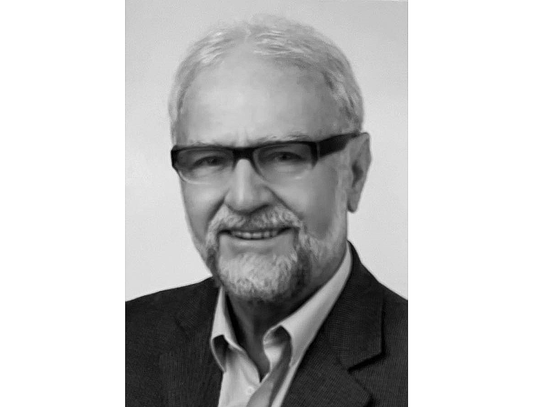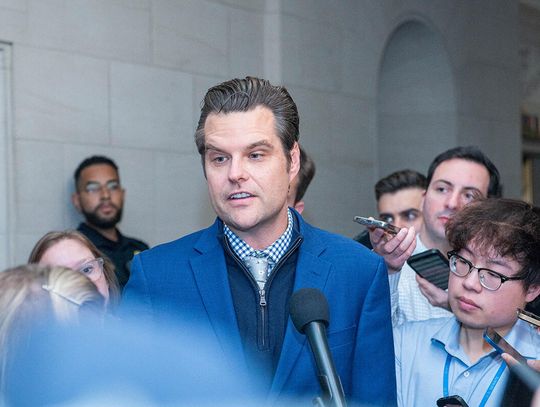In Memory of Zbigniew Brzezinski – his vision and legacy
Lecture about Zbigniew Brzezinski, Polish-American diplomat and political scientist and his geopolitical strategy for winning the Cold War and dismantling the Soviet Bloc was presented by Dr. Lucja Swiatkowski-Cannon during the PIASA Annual Meeting, June 9th, 2018 in New York. Brzezinski died May 26th, 2017.
INTRODUCTION
First, I would like to honor Zbigniew Brzezinski who was a very important leader of this organization for nearly 40 years. I also would like to honor him for his scholarly and political activities on behalf of Poland and other countries oppressed by communism.
When Zbigniew Brzezinski was ten years old and living in Canada with his diplomat father, Germany and the Soviet Union invaded Poland and savaged it. He was very traumatized by it and developed lifelong admiration for Polish resistance, the Home Army. When after the war, the Soviet Union imposed communism on Poland, he started to study it.
He became a fierce opponent of communism and of Soviet oppression of its neighbors in Eastern Europe. He believed that the system would collapse of its own contradictions if countered decisively by cooperating Western powers and the support for anti-communists in occupied countries.
ACADEMIC LIFE
Study of Soviet communism
First, Zbigniew Brzezinski became a foremost authority on communism at a time when American policymakers did not understand its ideological nature.
Already when he was a student at McGill University in 1950 he wrote his MA thesis on nationality problems within the Soviet Union. His conclusion was that it was the biggest Soviet weakness, which would become crucial at a time of crisis.
His Harvard PhD dissertation, published as The Permanent Purge dealt with Soviet purges as a phenomenon in totalitarian systems. He also published a controversial study with his professor Carl Friedrich called Totalitarian Dictatorship and Autocracy, comparing Nazi and Soviet regimes. He was one of the first scholars to be recognized as a Sovietologist
Study of Eastern Europe
In 1957 after the Khrushchev speech denouncing Stalin and his crimes, he wrote a book called The Soviet Bloc: Unity and Conflict, which became a textbook on Eastern Europe for many years to come. In it, he emphasized the importance of the decline of ideology after Stalin’s death. This allowed for the increasing diversity of the Soviet bloc countries, which should be supported by the West.
Convergence theory
In 1964, Zbig published a book with Samuel Huntington titled Political Power: USAUSSR, which was a response to fashionable theories of convergence between both countries in response to industrialization. Many scholars assumed that industrialization, requiring rationalization and economic efficiency, would lead to increasing similarity of East and West. The authors rejected such theory, citing different history, attitudes, ideology and most importantly the role of political control in the Soviet system.
In a subsequent article “Transformation or Decay of the Communist System,” Zbig argued that not only there was no convergence between the USSR and the West but that the Soviet system was actually decaying because those in power were unable to respond to challenges posed by society. The Soviet ruling class was unwilling to give up its political control of all aspects of Soviet life. For Zbig, this signified permanent crisis and petrification of the Soviet state.
POLICY ADVISOR
Starting in the 1960’s, his deep expertise on communism started to interest Presidents Kennedy and Johnson and in 1968, he became the head of the foreign policy team in the presidential campaign of Democrat Hubert Humphrey. He already started to formulate his strategy for the destruction of Soviet communism and breaking its stranglehold on Eastern Europe.
Peaceful engagement in Eastern Europe
In 1961, he published an article in Foreign Affairs titled ‘Peaceful Engagement in Eastern Europe,’ and in 1965, he further developed his ideas in a book called Alternative to Partition. He was dissatisfied with the existing strategies, such as liberation, which was discredited when the US decided not to intervene against the Soviet invasion of Hungary; George Kennan’s strategy of containment whose goal was just to keep what the West already had or Henry Kissinger’s Congress of Vienna balance of power, which seemed too static. Peaceful engagement consisted of engaging and embracing, not isolating, East European countries to attract them to the West and move them away from the Soviet sphere. He wanted to increase economic, political and cultural exchanges with them in order to promote diversity. He hoped that a more diverse and Western –oriented Eastern Europe would be freer and have a moderating influence on the Soviet Union.
Cooperation with other Western powers
Another ingredient of this strategy was the cooperation of democratic states to strengthen the hand of the West. In 1973 he created with David Rockefeller the Trilateral Commission to coordinate actions of the United States, Europe and Japan vis-à-vis the Soviet Union. Contacts and studies of the Trilateral Commission were the base for many policies of the Carter Administration.
Anti-detente
During the presidential campaign of 1976, his ideas were contrasted with the Kissinger strategy of détente with the Soviet Union based on the balance of power. This policy was fiercely attacked not only by the Democratic candidate Jimmy Carter but also by the conservative Republican Ronald Reagan.
Zbig’s position was that détente under Kissinger became excessively one-sided and the Soviets were taking advantage of the United States. He wanted détente to be reciprocal and global and encompass all aspects of the relationship in order to moderate Soviet behavior in the Third World and its military buildup.
But the biggest and most dramatic disagreement occurred over Eastern Europe. First, the so-called Sonnenfeldt Doctrine was leaked to the press where an associate of Kissinger’s made an admission that Soviet domination over Eastern Europe was acceptable and there was no need to contest it. When in agreement with this doctrine, President Gerald Ford asserted during a presidential debate that Poland was NOT dominated by the Soviet Union, many Americans questioned his judgement. It was regarded as the most decisive moment in the presidential campaign. Jimmy Carter denounced the policy of spheres of influence and its consequences for Eastern Europe and won the election. Zbigniew Brzezinski became his National Security Adviser
THE WHITE HOUSE
Official support for human rights and dissidents
Upon assuming his White House office, Zbig, s first memorandum to the President was to include human rights as an important consideration of American foreign policy. That became a very important instrument that is widely accepted now. He also supported anti-communist dissidents and Radio Free Europe broadcasts. He became friends with Pope John Paul II to the extent that some accused them of plotting to liberate Poland. Of course, he strongly supported Solidarity.
Expansion of economic contacts
He expanded the range of economic and trade contacts with Eastern Europe and urged the World Bank to get involved there.
Maintaining an adequate military posture
The issue of the Soviet military buildup became urgent when a 1978 Defense Department report sounded an alarm over a deteriorating military balance. The Carter Administration started an extensive military expansion to maintain an adequate deterrent. In the meantime, Zbig led the establishment of formal diplomatic relations with China as a counter to the Soviets.
He also admired and championed Colonel Ryszard Kuklinski, a Polish spy on the General Staff, who supplied the United States with crucial information about Soviet military capabilities and plans for a conventional war in Europe.
However, most of his time had to be spent on countering Soviet moves in Third World countries, which culminated in the Soviet invasion of Afghanistan. Zbig made a decision to supply the Afghans with arms to resist this invasion, which was the first such decision in the postwar period.
Countering Soviet invasion of Poland
However, his most important contribution to the Polish cause was defending Poland from the anticipated Soviet invasion in December 1980. As the Soviets were conducting military exercises, which were thought to be a preparation for such a move, Brzezinski kept warning them of dire consequences of their action. Because the United States government already imposed sanctions on the Soviets and boycotted the Moscow Olympics as a result of the invasion of Afghanistan, the Soviets knew that these threats were credible and they desisted.
Brzezinski guided US foreign policy at a critical moment in the Cold War where the Soviet power was at its height but most US policymakers did not realize it yet. His leadership ensured a vigorous response from the United States to make sure that the Soviets did not gain an upper hand. He had to struggle against a large group of proponents of lopsided détente in the Carter Administration, which gave it an appearance of disarray.
THE REAGAN ADMINISTRATION
After Jimmy Carter lost the election to Ronald Reagan in 1980, Brzezinski supported the general thrust of Reagan’s foreign policy of countering the Soviets and was invited to serve on numerous government advisory commissions.
His policies of military buildup, support for human rights and assistance to Third World anti-communist governments were continued by the Reagan Administration. Reagan also declared sanctions on both Poland and the Soviet Union in retaliation for the imposition of martial law.
He thought so highly of Zbig’s policy recommendations that he wanted to make him his national security adviser in the second term but it was politically impossible.
1989
Collapse of communism
By the end of the 1980’s, Brzezinski started to sense great turmoil in the Soviet Union and the Soviet Bloc. He analyzed the situation in articles as well as writing a bestseller called The Grand Failure: the Death of Communism in the 20h Century where he presented communism as being on its deathbed. He did not think that Gorbachev’s reforms would succeed because they did not go far enough in liberalizing the Soviet Union. He thought that the combination of political liberalization with economic recession constituted a prerevolutionary situation, a precursor of a political explosion. He was afraid that an explosion could provoke a return of political repression. That is why he favored gradual change as a response to Gorbachev’s initiatives. However, his views changed over time. By the summer of 1989, he discounted the possibility of violence as he realized that communist reforms were driven from above.
In the Moscow lecture in the fall of 1989, he championed self-determination for Eastern Europe, market-based economies, and democracy and freedom of choice for the Soviet Union. His meetings with Gorbachev and his advisers made him aware that they rejected Stalinism but embraced an idealized version of Leninism. In Eastern Europe, the Soviets wanted its security respected and maintenance of friendly relations. Their attitudes and slogans confirmed Zbig’s view that the gap between Gorbachev’s vision and needs of his own society was unbridgeable and would lead to a collapse. When asked in an interview in November 1989 whether the Soviet Union will exist in 2001, he said: No.
His Poland strategy
His strategy for Poland was one of gradualism but moving inexorably toward pluralism and democracy. He favored gradualism in political reforms and in economic reforms and was therefore an opponent of the shock therapy. He was a proponent of lustration, particularly in the Interior Ministry. He also recommended US negotiations with the Warsaw Pact to lower the level of conventional arms whose highest concentration was located in Poland.
Year 1989 raised an important issue related to Brzezinski: the role of ideas in politics and in history. His own encompassing geopolitical vision, political independence, great expertise and prodigious writings had made him very influential among US politicians and public at large. Yet at the moment when all his talents had the most to contribute to the resolution of the Gorbachev challenge amid great uncertainty and rapid changes in the communist system, the new President George HW Bush chose the strategy based on the balance of power, strong leadership and spheres of influence, propagated by Henry Kissinger. This choice was inadequate to the task and contributed to his electoral defeat after his first term.
In the 1990’s, Brzezinski stayed on the outside and organized the CSIS US-Poland Business Action Commission to help Poland with various aspects of reforms and recruited numerous Western corporations to give advice and to invest. He was also the head of the Ukraine Commission.
Later, he became deeply involved in the debate on the expansion of NATO and became an effective champion of inclusion of East European countries in to NATO security structures. Poland, Hungary, Slovakia and the Czech Republic were admitted to NATO in 1999 in the face of strong opposition of his liberal enemies from the Carter Administration.
The future of Russia
After the defeat of communism, he continued to write books on America’s role in the world, which he regarded as an essential stabilizing factor in an era of turbulent change. His view of Russia became more nuanced. While he disapproved of the Putin regime and compared him to Stalin and Mussolini, he thought that in the long run Russia must adopt Western standards and join Europe or it will be isolated and become a victim of Chinese expansionism. He thought that this reconciliation with the West will be led by the expanding and increasingly Europeanized Russian middle class. He saw demonstrations against Putin’s reelection as President as harbinger of changed Russian attitudes.
At the same time, he thought that the biggest obstacle to Russian reconciliation with the West is Poland because of its own traumatic historical experience with its neighbor. That’s why he promoted an understanding and lowering of tensions between these two countries. However, with Putin’s invasion of Ukraine it became impossible. He supported Ukraine in its quest for autonomy and independence but was not ready to recommend that it be admitted to Western structures in the near future.
CONCLUSIONS
Zbigniew Brzezinski was the foremost Sovietologist and grand strategist of the post-World War II period. He realized that while the communist Soviet Union was the chief and most dangerous opponent of the United States and the West, in addition to oppressing Poland and its other East European neighbors, US leaders did not understand it. He had to change the whole US foreign policy framework to make it more effective in dealing with communism.
His deep and scholarly understanding of communism, combined with his commitment to freedom and human dignity, led him to development of a political strategy to defeat it. This strategy was very dynamic and was adjusted to changes in the Soviet Union and in international system. His writings influenced US policymakers throughout the postwar period. He is perhaps the only one who predicted the collapse of communism. He was always convinced that the democratic West would defeat it. It was only a question of strategy and time.
It is also important to note his special regard for Poland and Eastern Europe as the first victims of the Soviet communist oppression. His trauma of seeing Poland finding itself in the Soviet sphere of influence led him to call attention of US policymakers and scholars to the importance of the region. From his 1957 book on the Soviet bloc to the end of his life, Zbigniew Brzezinski was always the ambassador for oppressed people of Poland and Eastern Europe.
As he said in his book Second Chance, “The defeat of the Soviet Union was the consequence of a forty year bipartisan effort that spanned the presidencies of Harry Truman, Dwight Eisenhower, John Kennedy, Lyndon Johnson, Richard Nixon, Gerald Ford, Jimmy Carter, Ronald Reagan, and George HW Bush. In different ways, almost every US president made a substantial contribution to the outcome but so did other figures, such as Pope John Paul II, Lech Walesa…, and Mikhail Gorbachev (the initiator of the disruptive perestroika of the Soviet system.)” And Zbigniew Brzezinski also deserves an eminent place in this pantheon.
Source: Dr. Lucja Swiatkowski-Cannon
fot.Matthew Cavanaugh/EPA
Reklama










